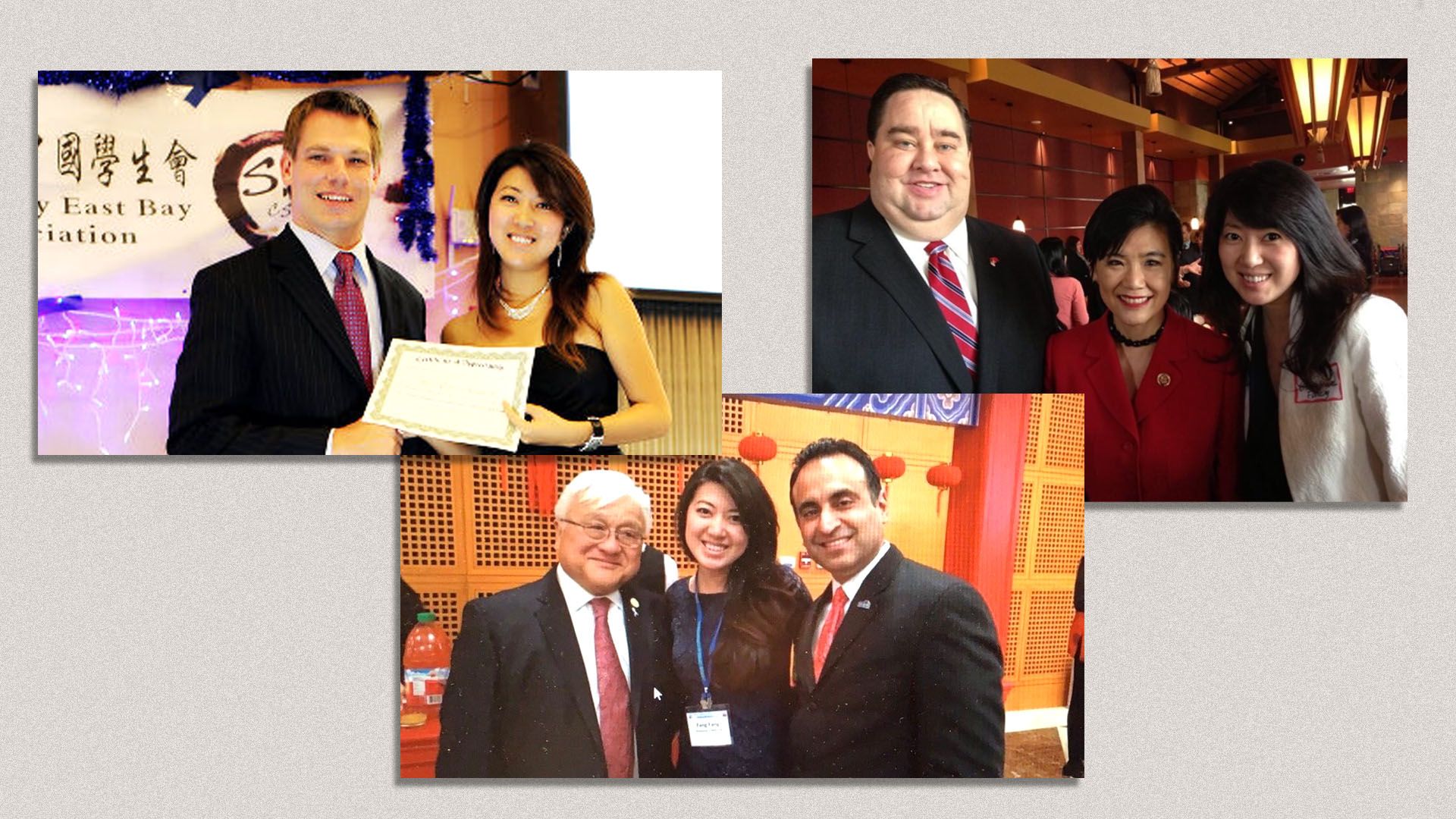Sure, we pray for DiFi, and all of that. Hopefully, she cried out for Jesus in her last moments and was saved. But that doesn’t mean we can’t accurately reflect on the damage her life had on the United States of America.
And her death doesn’t mean we can not address the last legacy of how being Communist-friendly has harmed our liberty.
We say- Godspeed, DiFi, but we wish you had not helped to destroy our beautiful Republic.
The leftist Boston Globe reported on the details and set the stage for the political class is going to describe Feinsteand’s long reign of terror in politics:
“Senator Dianne Feinstein of California, a centrist Democrat who was elected to the Senate in 1992 in the “Year of the Woman” and broke gender barriers throughout her long career in local and national politics, has died.
Three people familiar with the situation confirmed her death to The Associated Press on Friday. The Globe independently confirmed her death with a source who was close to Feinstein.”
A ‘centrist’ ?
Then who is a radical?
“China Queen Dianne Feinstein Used Her Senate Power to Push Most-Favored-Nation Status for the CCP’s Corrupt Dictatorship,” is a headline from Tablet magazine.
Of course, the California politician was known most for her gun grabs. On January 24, 2013, Senator Dianne Feinstein introduced the Assault Weapons Ban, a bill to stop the sale, transfer, importation and manufacturing of military-style “assault weapons” and high-capacity ammunition feeding devices.

She was no centrist. She was a gun grabbing radical and a self-promoting, pro-Communist politician.
“…Any politician who’s been running for office for 25 years collects a baggage car full of contradictions. But Feinstein pulls a freight train,” read one crushing local report that was critical of ‘DiFi’ in the late 1980’s.
Her Real Legacy? The Communist-Friendly United States of America.
“A high-profile example of this occurred in the 2000s, when China’s Ministry of State Security allegedly recruited a San Francisco-based staffer in Sen. Dianne Feinstein’s office. This person, who was fired when the FBI alerted Feinstein to his activities, was responsible for liaising with the local Chinese community,” Axios reported in 2020
And that is how much of the CCP infiltration started, with Diane Feinstein.
Remember this Axios article:
A suspected Chinese intelligence operative developed extensive ties with local and national politicians, including a U.S. congressman, in what U.S. officials believe was a political intelligence operation run by China’s main civilian spy agency between 2011 and 2015, Axios found in a yearlong investigation.
Why it matters: The alleged operation offers a rare window into how Beijing has tried to gain access to and influence U.S. political circles.
- While this suspected operative’s activities appear to have ended during the Obama administration, concerns about Beijing’s influence operations have spanned President Trump’s time in office and will continue to be a core focus for U.S. counterintelligence during the Biden administration.

The woman at the center of the operation, a Chinese national named Fang Fang or Christine Fang, targeted up-and-coming local politicians in the Bay Area and across the country who had the potential to make it big on the national stage.
- Through campaign fundraising, extensive networking, personal charisma, and romantic or sexual relationships with at least two Midwestern mayors, Fang was able to gain proximity to political power, according to current and former U.S. intelligence officials and one former elected official.
- Even though U.S. officials do not believe Fang received or passed on classified information, the case “was a big deal, because there were some really, really sensitive people that were caught up” in the intelligence network, a current senior U.S. intelligence official said.
- Private but unclassified information about government officials — such as their habits, preferences, schedules, social networks, and even rumors about them — is a form of political intelligence. Collecting such information is a key part of what foreign intelligence agencies do.
Among the most significant targets of Fang’s efforts was Rep. Eric Swalwell (D-Calif.).
- Fang took part in fundraising activity for Swalwell’s 2014 re-election campaign, according to a Bay Area political operative and a current U.S. intelligence official. Swalwell’s office was directly aware of these activities on its behalf, the political operative said. That same political operative, who witnessed Fang fundraising on Swalwell’s behalf, found no evidence of illegal contributions.
- Federal Election Commission records don’t indicate Fang herself made donations, which are prohibited from foreign nationals.
- Fang helped place at least one intern in Swalwell’s office, according to those same two people, and interacted with Swalwell at multiple events over the course of several years.
A statement from Swalwell’s office provided to Axios said: “Rep. Swalwell, long ago, provided information about this person — whom he met more than eight years ago, and whom he hasn’t seen in nearly six years — to the FBI. To protect information that might be classified, he will not participate in your story.”
What happened: Amid a widening counterintelligence probe, federal investigators became so alarmed by Fang’s behavior and activities that around 2015 they alerted Swalwell to their concerns — giving him what is known as a defensive briefing.
- Swalwell immediately cut off all ties to Fang, according to a current U.S. intelligence official, and he has not been accused of any wrongdoing.
- Fang left the country unexpectedly in mid-2015 amid the investigation. She did not respond to multiple attempts by Axios to reach her by email and Facebook.
Between the lines: The case demonstrates China’s strategy of cultivating relationships that may take years or even decades to bear fruit. The Chinese Communist Party knows that today’s mayors and city council members are tomorrow’s governors and members of Congress.
- In the years since the Fang probe, the FBI has prioritized investigations into Chinese influence operations, creating a unit in May 2019 within the bureau solely dedicated to countering Beijing’s activities at the state and local levels. U.S. national security officials believe the threat posed by China has only grown with time.
- “She was just one of lots of agents,” said a current senior U.S. intelligence official.
- Beijing “is engaged in a highly sophisticated malign foreign influence campaign,” FBI director Chris Wray said in a July 2020 speech. These efforts involve “subversive, undeclared, criminal, or coercive attempts to sway our government’s policies, distort our country’s public discourse, and undermine confidence in our democratic processes and values,” Wray said.
The FBI declined to comment. The Chinese Embassy in Washington did not respond to a request for comment.
Details: Axios spoke with four current and former U.S. intelligence officials about the case over a period of more than a year. They requested anonymity because they were not authorized to speak to the media about the case.
- Axios also spoke with 22 current and former elected officials, political operatives, and former students who knew Fang personally when she was based in the United States.
